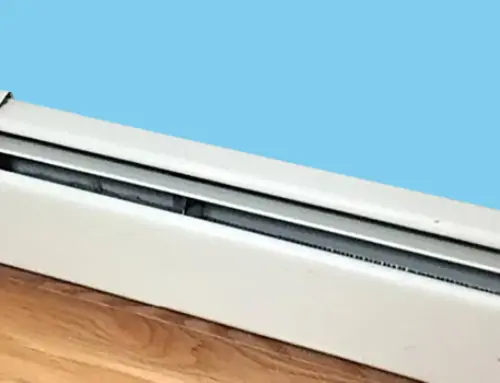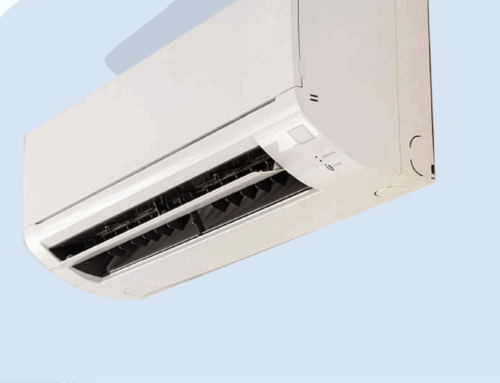Home Inspections: How Long it Takes, Preparation, & Cost
by Tyler Castle
11.9 min read
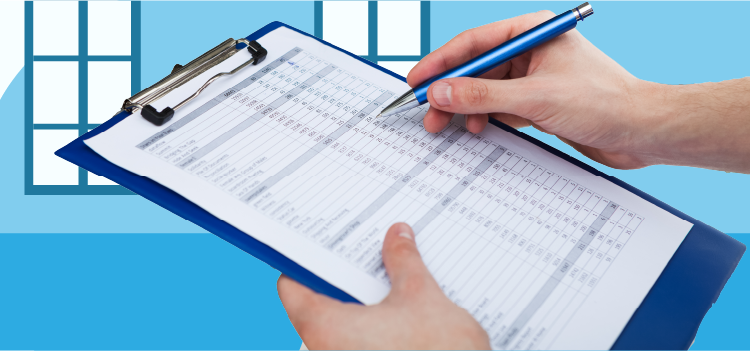
Buying a home is one of the biggest investments most people make! A thorough home inspection makes a difference between whether a homebuyer purchases a home or not. While it's not required by most U.S. states to conduct a home inspection before you move in, it's a good idea to consider having one to ensure your potential home is safe to live in.
If you're wondering what a home inspection is, how long it'll take, and what it entails, you're in the right place. We'll cover all your burning questions and more; so let's jump in!
What is a Home Inspection?
A home inspection is a thorough examination of the condition of a property. A home inspection is typically conducted by a licensed inspector before the finalization of a home sale.
Purpose of a Home Inspection
The purpose of a home inspection is to assess the overall condition of the home and identify any major defects or safety issues. This inspection helps buyers make informed decisions and negotiate repairs or price adjustments.
A home inspection is typically beneficial to homebuyers considering buying older houses that are susceptible to problems. Home buyers typically do have the opportunity to walk away from a purchase after a bad home inspection.
Home inspections commonly involves inspecting foundation and structural elements, your roof, electrical, heating and cooling systems, windows, doors, and interior and exterior elements like siding and drainage.
Home Inspections in the Midwest Region
Home inspectors don't have unique regional requirements, but in the Midwest, home inspectors might focus more on systems that correlate with local issues.
For example, if you live in Philadelphia where you experience harsh winters, inspectors might take a closer look at your doors or windows to ensure there's no cracks where air can escape and compromise a home's energy efficiency.
In the same way, if you live in Ohio where tornadoes can be common, an inspector might focus on your basement to ensure the structure is sound.
When is it Worth it to Ask for a Home Inspection?
A home inspection is generally worth it in most real estate transactions. For home buyers, it's worth it to ask for a home inspection before you complete the purchase of your home, especially if you're purchasing an old home. In the same way, if you're planning on buying a foreclosure or short-sale property to learn what home improvements you'll need to make.
For home sellers, a home inspection is beneficial before listing your home to identify and address issues proactively. This also builds trust and transparency with potential home buyers.
Is a home inspection on new construction worth it? It's worth it to ensure your new construction is up to code and won't cause any safety hazards to new home buyers.
What to Expect During a Home Inspection
During a home inspection, a certified inspector will conduct a thorough examination of the property. The inspector will systematically check each part of the home, both inside and out. Usually, your home inspector evaluates major home systems, your roof, and your foundation.
Buyers are usually encouraged to attend to ask questions and understand the findings.
What Does a Home Inspection Cover?
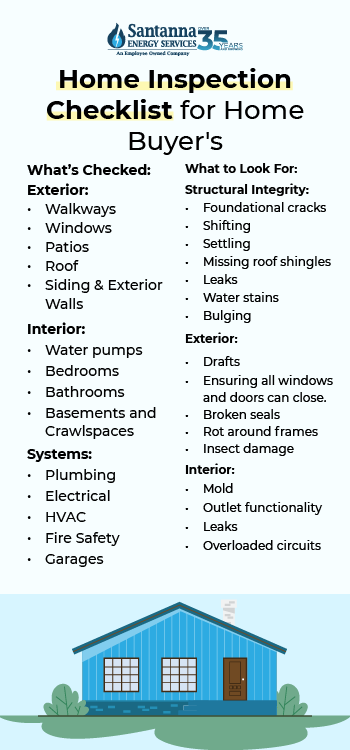
A standard home inspection covers the structural, electrical, plumbing, and mechanical systems, roofing while looking for signs of damage, wear and other potential issues. Typically, a home inspection covers:
Exterior
- Walkways: Assessing the condition and safety of walkways and driveways.
- Windows: Checking for proper installation, operation, and any signs of damage.
- Patios: Evaluating the structural integrity and condition of patios and decks.
- Roof: Condition of shingles, tiles, or other roofing materials, gutters and downspouts.
- Siding and Exterior Walls: Material condition and signs of damage.
Interior
- Water Pumps: Inspecting the functionality of water pumps and related systems.
- Bedrooms: Checking for structural integrity, windows, and signs of moisture or mold.
- Bathrooms: Assessing plumbing, fixtures, ventilation, and signs of water damage.
- Basement and Crawlspace: Looking for moisture issues, foundation cracks, and proper insulation.
Systems
- Plumbing: Ensuring all pipes, fixtures, and water heaters are in good working condition.
- Electrical: Checking the wiring, outlets, and electrical panel for safety and compliance.
- HVAC (Heating, Ventilation, and Air Conditioning): Evaluating the efficiency and condition of heating and cooling systems.
- Fire Safety: Ensuring smoke detectors, fire extinguishers, and carbon monoxide detectors are present and functional.
- Garages: Inspecting the garage door, opener, and the structure for safety concerns.
- Doors: Checking all doors for proper operation, alignment, and security.
What to Look for in a Home Inspection
Most commonly during a home inspection, home inspectors look for:
Problems with the structural integrity:
- Looking for foundational cracks, shifting, or settling that might indicate structural issues.
- Inspecting your roof for missing shingles, leaks, or signs of aging that could lead to future problems.
- Checking for cracks, water stains, or bulging in your walls and ceilings that might suggest underlying issues like water damage or foundation movement.
- Noting any unevenness, squeaks, or soft spots in floors that could indicate damage or poor construction.
Any alarming exterior elements like:
- Looking for cracks, sinking, or other damage in walkways or driveways that might require repair.
- Ensuring all windows and doors open, close, and lock properly. Checking for drafts, broken seals, or rot around frames.
- Evaluating the conditions of wood or concrete surfaces in patios, looking for signs of rot, insect damage, or structural weakness.
- Inspect for peeling paint, cracks, or moisture damage in siding or paint that could affect the home's exterior protection.
Inspecting interior components checking for signs of
- Leaks, water pressure issues, or outdated piping that may need replacing from pumping or water pumps.
- Looking for signs of moisture, mold, or poor ventilation, ensure outlets, lights, and windows function correctly in bedrooms.
- Checking for leaks, proper water pressure, and adequate ventilation. Inspect tile, grout, and fixtures for wear or damage in bathrooms.
- Look for signs of water intrusion, mold, or pests, ensuring that the foundation walls are intact and dry in basements and crawlspaces.
- Verify that outlets, switches, and the electrical panel are functioning safely in electrical systems. Look for outdated wiring or overloaded circuits that could pose a fire risk.
- Checking the heating and cooling systems for proper operation. Inspecting ductwork for leaks and ensuring that the systems are adequately maintained.
- Ensuring that smoke detectors, carbon monoxide detectors, and fire extinguishers are installed and working properly.
- Inspecting the garage door openers, checking for signs of pests, and ensuring the structure is sound in garages.
What to Ask During a Home Inspection?
If you're gearing up for a home inspection and wondering what to ask, ask about the severity and implications of any issues found. It's also helpful to inquire about the expected lifespan of major systems (roof, HVAC, etc.) and request maintenance tips to preserve the condition of the home.
How Long Does a Home Inspection Take?
Home inspections typically lasts 2-4 hours depending on the size and condition of the property.
Common red flags home inspectors look for are:
- Water damage.
- Electrical hazards.
- Pest infestations.
- Outdated or inadequate systems.
Note, that older houses may take longer to inspect because of their dated conditions and possible lack of updates.
What is a 4 Point Home Inspection?
A 4-point home inspection focuses on four key areas: roof, electrical, plumbing, and HVAC.
A 4-point home inspection is common for older homes because it focuses on the critical systems most prone to deterioration over time. A 4-point home inspection is often encouraged for insurance purposes, especially for homes older than 30 years.
How to Prepare for a Home Inspection
For Sellers
- Clear access to key areas like the attic, basement, and utility rooms for easy access for your home inspector.
- Make necessary minor repairs beforehand, such as fixing leaky faucets or replacing burnt-out bulbs.
- Make sure all doors, gates, and sheds are unlocked so the inspector can access every part of the property.
- Provide a list of recent repairs and maintenance, along with receipts or warranties. This can reassure buyers and inspectors that the home has been properly cared for.
- Be upfront about any known issues with the property. This transparency can build trust and prevent surprises during the inspection.
For Buyers
- Bring a checklist of concerns or areas of interest.
- Plan to be present to ask questions and get immediate feedback from the inspector.
- Familiarize yourself with what the home inspection will and will not cover. Knowing this in advance will help manage your expectations and prepare you to ask informed questions, or request to inspect certain areas.
- Be prepared for the possibility of additional costs if the inspection reveals issues that need addressing.
How Much Does a Home Inspection Cost?
The cost of a home inspection typically ranges from $300 to $500, depending on the home's size and location.
Average Home Inspection Costs by State
| State | Average Home Inspection Cost |
|---|---|
| Pennsylvania | $350 – $425 |
| Illinois | $350 – $425 |
| Ohio | $325 – $375 |
| Michigan | $300 – $350 |
How Much is a Home Inspection in PA?
In Pennsylvania, inspections typically range from $360 to $400, with regional variations for cost of a home inspection in Philadelphia, PA and Bethlehem, PA.
The average home inspection cost in Philadelphia PA costs $325 to $425,
Factors Affecting Cost
One of the most common factors that affects the cost of a home inspection is the size, age, and location of the property. Larger homes require more time and effort to inspect thoroughly. While older homes can be more complex because of their outdated systems.
Additional services like radon testing or termite inspection may incur extra fees.
Who Pays for the Home Inspection?
It is the home buyer’s responsibility to pay for a home inspection. The inspection usually occurs after an offer is accepted but before the sale is finalized.
What Are Things That Can Fail a Home Inspection?
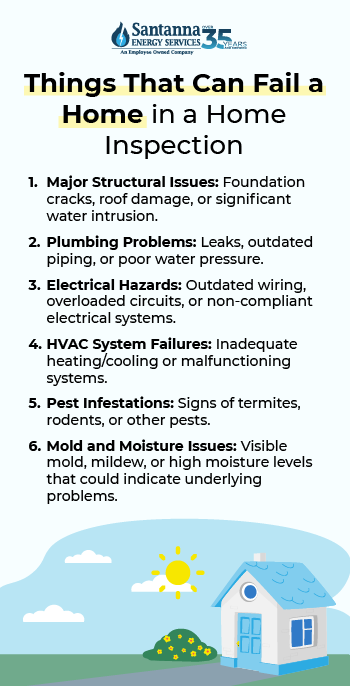
No home is perfect, here are some of the most common things that can fail a home in a home inspection:
- Major Structural Issues: Foundation cracks, roof damage, or significant water intrusion.
- Plumbing Problems: Leaks, outdated piping, or poor water pressure.
- Electrical Hazards: Outdated wiring, overloaded circuits, or non-compliant electrical systems.
- HVAC System Failures: Inadequate heating/cooling or malfunctioning systems.
- Pest Infestations: Signs of termites, rodents, or other pests.
- Mold and Moisture Issues: Visible mold, mildew, or high moisture levels that could indicate underlying problems.
What Happens if a House Fails Inspection?
For buyers, there are options to negotiate repairs with the seller or request a price reduction. If repairs and the overall structure of the house undesirable to the prospective buyers, there is the option to walk away from the deal.
Sellers may agree to make repairs, offer a price reduction, or refuse, depending on the market conditions.
Can I Refuse a Home Insurance Inspection?
Yes, you can refuse a home insurance inspection. Not to be confused with a home inspection, a home insurance inspection happens after you’ve already owned your home and can be requested by your insurance company.
A home insurance inspection is a good thing to consider as it eliminates future risks and problems that might come with your aging home which can help you feel more prepared for future expenses.
Keep in mind that the refusal could lead to increased premiums or denial of coverage.
What Happens at the End of a Home Inspection?
At the end of a home inspection, both the buyer and seller can expect several key events to take place:
Review of Findings
The home inspector will typically provide a verbal summary of their findings, highlighting any major issues or areas of concern. If the buyer is present, the inspector might take them on a brief walkthrough of the home to physically point out issues they’ve noted.
Delivery of the Inspection Report
Within a few days, the inspector will provide a detailed written report that outlines their findings. This report will include photos, descriptions of each issue, and sometimes recommendations for repairs or further evaluations.
Discussing the Report
Buyers typically review the inspection report with their real estate agent to discuss the findings and strategize the next steps. The agent can offer guidance on whether to request repairs, ask for a price reduction, or negotiate other terms based on the inspection results.
Negotiation Process
Depending on the inspection results, the buyer may choose to request that the seller make certain repairs before closing or offer financial credits to cover the cost of those repairs.
Decision Time
If the inspection reveals no major issues, or if the buyer and seller reach an agreement on repairs or a price reduction, the buyer can proceed with the purchase.
If the inspection uncovers serious problems and an agreement cannot be reached, the buyer may have the option to back out of the contract without penalty, depending on the terms of the purchase agreement.
Final Steps
If everything is in order, the buyer and seller move forward to the closing process, where the final sale is completed.
Energy Efficiency and Home Inspections
During a home inspection, issues such as outdated insulation, inefficient HVAC systems, or poor windows can be identified. These factors not only affect the comfort of the home but also have significant implications for your energy bills.
Addressing these concerns can lead to more energy-efficient upgrades, reducing overall utility costs.
At Santanna Energy Services, we offer tailored energy solutions designed to fit your specific needs. Our plans include budget-friendly options to help you manage and reduce your energy costs, making your new home more economical to maintain.
A home inspection is a vital step in the home-buying or selling process, providing insights into the property’s condition and helping you make informed decisions. From identifying major defects and safety issues to understanding the implications for energy efficiency, a thorough inspection can significantly impact your final purchase decision.
There's peace of mind in knowing you'll pay the same monthly supply cost amount for your electricity or natural gas supply without any uncertainty — no matter what. Santanna's Unlimited Energy option protects your bills from fluctuating supply charges no matter the changes in seasons. For over 35 years, Santanna has served customers in Illinois, Indiana, Pennsylvania, Michigan, and Ohio. Our mission is to provide innovative and cost-effective energy solutions that will help our customers achieve their energy goals.
Tyler is an experienced energy professional, having worked for Santanna Energy Services, for the past four years. He is passionate about renewable energy and believes that diversifying the energy grid is the key to a sustainable future. Tyler is dedicated to supplying consumers with the best possible energy solutions and works diligently to make sure that Santanna can deliver the highest quality service.




